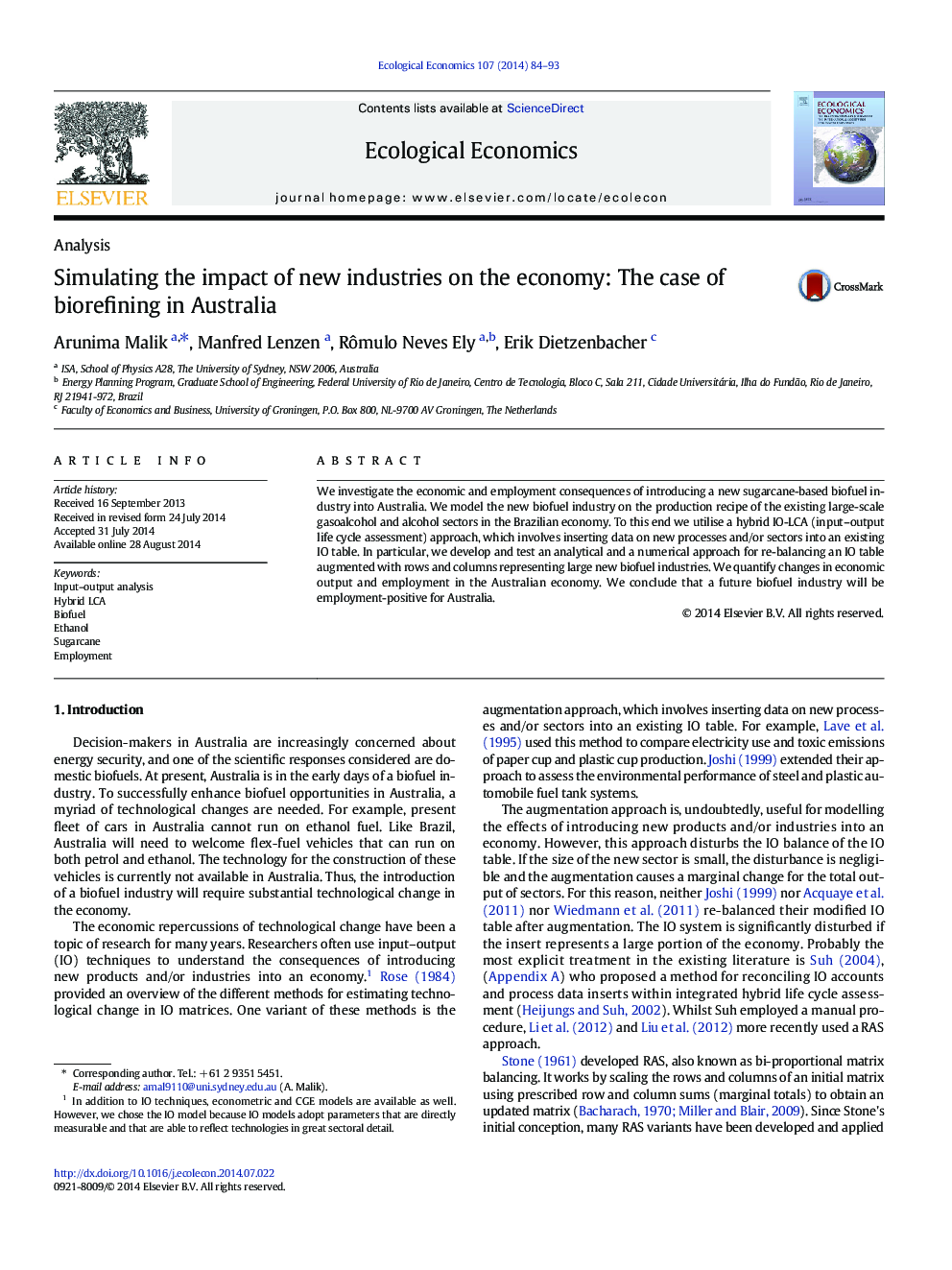| Article ID | Journal | Published Year | Pages | File Type |
|---|---|---|---|---|
| 5049508 | Ecological Economics | 2014 | 10 Pages |
â¢We analysed the economic impacts of introducing a new biofuel industry in Australia.â¢For modelling, we used real-world data from successful Brazilian biofuel production.â¢We developed an input-output method enabling us to assess large shocks to an economy.â¢We developed a new sequential technique for examining labour scheduling requirements.â¢We conclude that a future biorefinery industry will lead to the creation of new jobs.
We investigate the economic and employment consequences of introducing a new sugarcane-based biofuel industry into Australia. We model the new biofuel industry on the production recipe of the existing large-scale gasoalcohol and alcohol sectors in the Brazilian economy. To this end we utilise a hybrid IO-LCA (input-output life cycle assessment) approach, which involves inserting data on new processes and/or sectors into an existing IO table. In particular, we develop and test an analytical and a numerical approach for re-balancing an IO table augmented with rows and columns representing large new biofuel industries. We quantify changes in economic output and employment in the Australian economy. We conclude that a future biofuel industry will be employment-positive for Australia.
